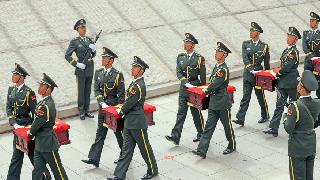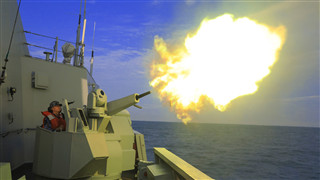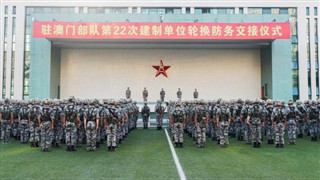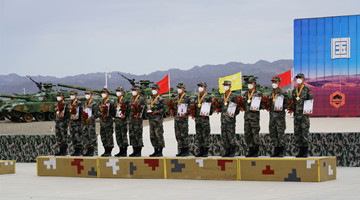吴怀中
By Wu Huaizhong
日本选举季正在跌宕中展开。这种政情动荡会否导致中日关系雪上加霜,值得关注。至少2020年春夏至今,日本政情就是造成两国关系持续震荡并不断下滑的重要原因。中日关系发展苦于日方政情政局,已非时短。
Japan is in the middle of an eventful election season. Whether its political instability will further freeze China-Japan relations is worth noting. From the spring of 2020 to the present day, at least, the political situation in Japan is an important reason for the unending undulation and continuous fall of bilateral relations, a problem that has dragged on for a long time.
右翼和鹰派势力坐大逞强
Right-wingers and Hawkish forces grow in strength
尽管日本政坛过往不时冒出针对中日关系的不和谐声音,但近期自民党内某些势力的负面言行已严重踩线越界。不可否认,国际政治环境尤其美国“拉日制华”、日本国内舆情氛围等,诱使自民党某些势力在对华关系上示强逞硬。
While there used to be cacophony in the Japanese political circle against China-Japan relations in the past, the recent negative words and deeds of certain forces within the Liberal Democratic Party have far crossed the line. There is no denying that the international political environment, especially America’s efforts to “rope in Japan to confront China”, and the public opinions within Japan have lured some Liberal Democratic Party (LDP) forces to put up a tough stance against China.
安倍执政期间有着较强的党政控局能力,“一强”地位加之“以右制右”,使其大致能驾驭右翼或强硬势力,把控在对华态度上高度复杂的国内政坛。其后继者菅义伟无派非阀,登台是党内各派系博弈妥协的结果,执政以来尽显党政双弱、控局乏力等短板,导致党内外右翼与鹰派势力坐大逞强。
Abe, while in office, was good at controlling intra-party politics. His dominant position and his tactic of “curbing the rightists with the rightists” enabled him to put a curb on the right-wing or hawkish forces and control the highly complicated domestic political circle in relation to China. In contrast, Yoshihide Suga has no faction affiliation and his election was purely the result of the game of the various forces within LDP. Since he took office, Suga’s weakness both in the party and the government and his inability to control the situation have been fully exposed, which has led to the growth of right-wing and hawkish forces both in and out of LDP.
菅义伟开始执政时,曾一再表示要构筑稳定的中日关系,但结果是这一年来的中日关系严重倒退。菅作为务实派政治家,并无明显意识形态色彩,亦无系统对外战略和外交经验,中日关系在其任内糟糕于斯,很大程度上是因为他作为弱势党魁和首相,需要迎合党内外强势的新老保守右翼势力的诉求,以部分让渡外交和安全政策主导权换取相应的执政支持和背书。
When he came in power, Suga repeatedly expressed his wish to foster a stable relationship with China, only to see it on a sharp downcurve in the past year. As a pragmatic politician, Suga is neither ideologically oriented nor systematically experienced in foreign strategy and diplomacy. That the China-Japan relation has fallen to a record low during his term is to a large extent because Suga, as a weak party leader and prime minister, has to cater to the demands of the aggressive and conservative right-wingers inside and outside the LDP, and give up some power over diplomatic and security policies in exchange for their support and endorsement.
中日关系经历“范式之变”
The “change of paradigm” of China-Japan relations
当前,日本选战正趋激烈,胜负未明,但至少可观察到,参选群体作为中生代或少壮派政治家代表,亲美保守、对华抗衡是基调,或者即便本人相对温和稳健,但为在当下氛围中造势拉票,也要对华示强示硬。
Japan is in the middle of an intense election. The result isn’t clear yet, but we can at least discern that the candidates, representing the young and assertive politicians, are generally conservative, pro-America and anti-China. Even if they are personally moderate, they have to act tough on China to win more votes in the current political mood.
因而,日本政情及其变化正对中日关系产生越来越多直接冲击和肆意干扰,日方也不再因中方感受或抗议而加以节制收敛。这实际是当下中日关系“范式之变”的一种体现,即双方的基本相处之道或关系模式由于日本内政因素而发生重要改变。
Therefore, the Japanese political situation and its changes are exerting more direct impacts and interference on China-Japan relations, and Tokyo no longer restrains itself because of China’s feelings or protests. This reflects a “change of paradigm” in bilateral relations – their way of dealing with each other or the mode of their relations have seen important changes due to political factors on the part of Japan.
转进改善才是中日关系正解
Improving China-Japan relations the only right way forward
“后菅义伟”时代的中日关系,普遍被认为是消极连续性更强,改善空间有限,重大拐点难现。并且,日本体制缺陷也助长了这一态势。“无责任中枢”被认为是日本独特的政治文化和体质特性,即明知事态朝着不好方向发展,却无人舍我做出决断,挺身力挽狂澜。政治人物们是运气来了碰一碰,见势不妙撂挑子,或者见好就收、适可而止。
The China-Japan relationship in the post-Suga period is generally believed to be more passive with little room for improvement and little chance of a turning point, a state further consolidated by Japan’s own institutional flaws. In Japan's unique political and cultural environment, even though everyone knows things are going in the wrong direction, nobody would stand up to call the shot, take the responsibility, and turn the tide. Politicians either only get involved when they believe there is something to gain and would jump ship the minute something goes wrong, or they just content themselves with what they have achieved without making any extra effort.
如此形势,亟需自民党出现具有高度战略眼光与政治智慧的政治家。放眼四顾,如此“大人物”似难寻觅。即便安倍,也更像是一个大“机会主义者”:“形势所需”远远大于对公理与正义的追求和坚守。
The LDP is in urgent need of a politician with strategic vision and political wisdom, a person that’s hard to find in current Japan. Even Shinzo Abe is more like an “opportunist”, whose desire to serve the time far outweighs the pursuit for equity and justice.
日本政治精英及战略界人士,一门心思琢磨“制华”。然而,过度制衡或遏制一个并无敌意的相邻大国,最终引起的反噬损失,可能远远大于保持适度平衡战略的收益。世界历史上的大国悲剧,已经雄辩地证明了这一点。
Political elites and strategists in Japan are racking their brains on how to contain China, but their obsession with countering or curbing a neighbor that holds no hostility will eventually backfire, when the consequences may overwhelm the gains they could have had by maintaining appropriate balance. The tragedy of major countries in world history has eloquently proved that.
自民党的党政领导层,在1972年以来的中日关系历史进程中做出过多次正确抉择。实践证明,这符合两国的根本利益。当前日本政权的更替,至少在理论上提供了一个关系重置的机会。
The LDP leaders have made the right choices many times regarding the China-Japan relations since 1972, and reality has proved that consistent with the fundamental interests of both countries. The introduction of a new administration in Japan would at least mean a chance to reset the relations.
两国关系是维持现状或跌跌不休,还是止跌求稳、转进改善?后者无疑艰难,却是唯一正解。
Will the bilateral relationship between the two countries stay where it is, keep falling, bottom out, or turn for the better? The last option is doubtlessly hard, but it’s the only right way forward.
刚刚结束的东京奥运会期间,中日双方并非没有默契和善意,日方也在不同渠道表示配合北京冬奥会举办。明年将是中日邦交正常化50周年,希望日方以政权更替为契机,守正革新,推动中日关系转圜并健康稳定发展。
Both sides showed a kind of tacit understanding and goodwill during the just-concluded Tokyo Olympic Games, and the Japanese side has expressed, through various channels, its willingness to support the Beijing 2022 Winter Olympics. Next year will mark the 50th anniversary of the normalization of China-Japan diplomatic ties. Let’s hope Tokyo will seize the opportunity of the change of regime, steer to the right path, and take new steps to promote the healthy and steady development of China-Japan relations.
(作者是中国社科院日本所副所长)
(The author is deputy director of the Institute of Japanese Studies, Chinese Academy of Social Sciences)











